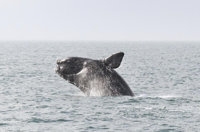(The Center Square) – A Virginia House panel voted to recommend setting aside a bill addressing accessory dwelling units this week, likely stalling a measure advocates say could have provided a tool to address the state's shortage of affordable rental units.
A House subcommittee voted to recommend "laying on the table" a substitute version of House Bill 2100, which proposed the Department of Housing and Community Development convene an advisory panel to develop a model local ordinance for ADU administration. The recommendation to table the bill means it is unlikely to move forward this session.
The original version of HB 2100 would have required localities to permit owners of a single-family dwelling lot to build an ADU if one did not already exist on the lot – a requirement that received pushback from some localities. The bill’s author, Del. Sally Hudson, D-Charlottesville, significantly amended the bill ahead of a House subcommittee hearing Thursday to strike those provisions entirely.
Hudson explained to lawmakers Thursday the advisory panel would consider factors for the administration of ADUs across Virginia, including issues like minimum lot sizes, setback requirements and impact fees. The panel would then provide a model ordinance to local governments to give them a framework for regulation of ADUs.
Housing advocates have pointed to ADUs – small residential units built on a property with a primary residence on the lot – as a way to address the state’s shortage of affordable housing units. Some localities across the commonwealth already allow ADUs to be built in some form, including Arlington, Charlottesville and Fairfax County.
A 2021 review conducted by the Joint Legislative Audit and Review Commission found with a declining number of Virginians able to afford a home, the state has a shortage of 200,000 affordable rental units.
“ADUs are increasingly recognized as a valuable tool in the Commonwealth's broader strategy to increase the supply of available housing units at affordable price points,” Hudson told lawmakers during Thursday’s hearing. “These units can be especially attractive to multi-generational households that wish to live on the same parcel while maintaining some privacy in separate units.”
Several organizations, including AARP Virginia and Richmond Habitat for Humanity, testified in support of Hudson's bill Thursday, noting the need for additional affordable housing and options for elderly residents to be able to "age in place."
Other groups, including the Virginia Manufacturing Modular Housing Association and the Home Builders Association of Virginia, argued more work on the bill was still needed.
"I think there's probably some additional work that could be done to get this to balance both local government and the industry's perspective," Andrew Clark, vice president of government relations with the Home Builders Association of Virginia, said Thursday.
Lawmakers in opposition to the bill ultimately cited pushback from localities regarding the original version of the bill as the reason they chose to table the measure.
“We did receive a tremendous amount of feedback from localities with their concern,” Subcommittee Chair Del. Will Morefield, R-Tazewell, said Thursday.
Joe Lerch, the director of local government policy for the Virginia Association of Counties, told The Center Square in an email that the organization opposed the original version of HB 2100, because it would have initiated a “mandate” for local governments to authorize ADUs without input from local stakeholders.
“Many counties exercise their authority to allow for the inclusion of ADUs within their zoning ordinances. In doing so, they determine the context of where ADUs can be reasonably accommodated to meet the needs of residents and homeowners,” Lurch said in an email. “A one-size-fits-all mandate to authorize an ADU wherever a single-family dwelling exists excludes input from citizens and communities on how ADUs can fit within existing and proposed residential developments.”
Lerch added VACo did not oppose the amended version of the bill, which would have created the advisory panel to draft a model ordinance.
Morefield encouraged Hudson to work with local government stakeholders in the off session to see if a resolution could be reached for a future version of the bill.
Lawmakers on the committee also voted to recommend tabling a bill, HB 2047, that would have allowed localities to provide for an affordable housing dwelling unit program by amending local zoning ordinances. The bill specified the program could include accessory dwelling unit allowances and transit-oriented development, among a list of other provisions.
A companion measure to the bill, Senate Bill 1141, passed the Senate in a 23-17 vote Thursday.









